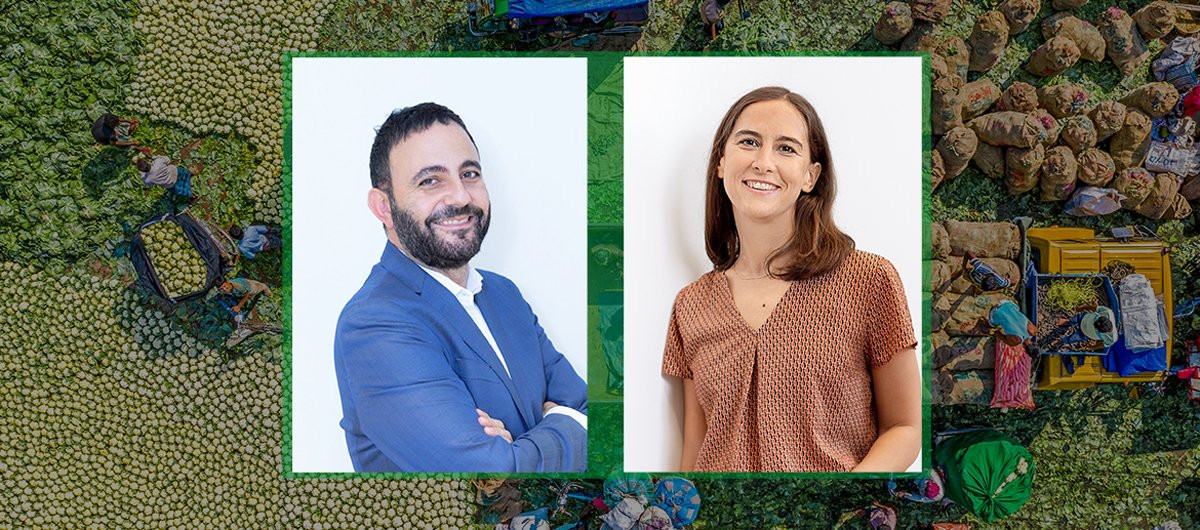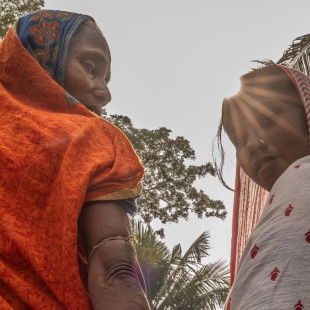What do we mean by financial inclusion?
Alain Lévy: It concerns all the means that we make available to people excluded from the traditional banking system, so that they have access to a bank account, credit, financial literacy or even insurance, for instance. According to the Global Index 2021, the latest published by the World Bank, 1.4 billion adults are excluded from banking services worldwide. The reasons can be multiple such as very low income, geographical isolation, people banned from banking, etc.
Marie Degrand-Guillaud: Financial inclusion is not only about access to basic financial services but also about informed and controlled access. This allows people to fully understand what they are accessing, so they can make informed choices, be autonomous in managing their money, and therefore live their lives independently.
How does Nickel meet these needs?
M. D.-G.: From the outset, a significant investment was made to enable everyone to access an account in the same way. At Nickel, there is no overdraft, so no related fees for customers and no risk for the bank. This is a highly universal approach, made possible by a technological innovation that is not found elsewhere. Account movements are displayed in real time for customers, rather than 3 or 4 days later. Thanks to this real-time management, customers gain immediate access to all the data linked to their account, which allows them to manage their life and their budget in complete autonomy. And furthermore, we have positioned this technology as close as possible to customers, thanks to points of sale which are located in close proximity and which also offer simplicity in the relationship, not to mention user friendliness and trust…
The Group has been supporting microfinance institutions for 35 years to foster financial, social and environmental inclusion. How do you act in the field with these partners?
A. L. : Crédit Rural de Guinée was the first microfinance institution that we supported back in 1989; this shows just how much we believe in this springboard for inclusion! Today the Group supports 21 MFIs with €345 million in loans and investments according to figures at the end of 2023. Our action mainly concerns the granting of microcredits, either productive microloans aimed at helping the beneficiary to start up or develop an existing activity in order to improve their standard of living, or less production-related microloans aimed at facilitating access to education or training for certain sections of the population, for example. These micro-loans can be individual - this is especially the case in Europe - or “group-based”, according to the “Grameen model” created by the Nobel Peace Prize winner, Professor Muhammad Yunus which is founded on solidarity within a group in the event of a solvency problem for one of the members.
What are your major challenges for this year 2024?
M. D.-G. : We approached 2024 with considerable enthusiasm and plans to meet the needs of our targets, which have expanded during our 10 years of existence and growth. Those who have their main account with Nickel – around two thirds of our customer base – today ask us for loans, home insurance and savings. We are therefore carrying out tests to widen access to these services, in particular with Floa for credit and with BNP Paribas Cardif and Lemonade for insurance.
A. L. : We are striving to increasingly develop environmental performance associated with social performance. We are working towards a just transition and therefore are keen to help micro-borrowers resist the impact of climate change and favour biodiversity; it is with this objective in mind that the ISLF+ (Inclusive Sustainability-Linked Financing) services were created making it possible to grant better loan conditions and technical assistance to institutions that achieve both social and environmental objectives. Our goal by 2025? Develop these ISLFs increasingly dedicated to the just transition and increase the number of MFI beneficiaries from 260,000 to 350,000. An ambitious but achievable goal!
THE 2024 MICROFINANCE SOCIAL PERFORMANCE REPORT IN KEY FIGURES
- 21 MFIs supported and taking part in the study, including 14 in emerging countries, 6 in Europe and 1 in the United States
- 13 countries and 8 local currencies represented
- 18,800 hours of pro bono work carried out by BNP Paribas employees with partner MFIs
- 78%: the SPI5 social performance score for MFIs supported by BNP Paribas versus an average score of 61% calculated on the basis of 366 MFIs evaluated by Cerise


